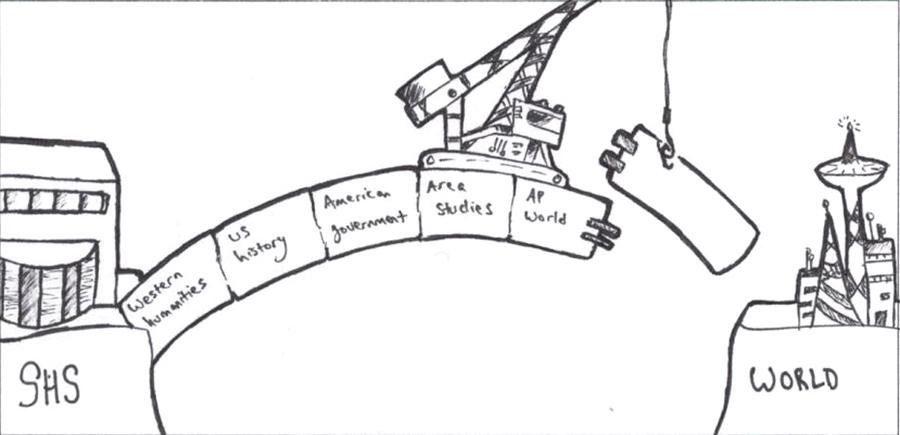
Inklings Editorial
The social studies department is currently beginning a curriculum review intended to broaden the international scope of its classes and bring them more in line with state and national trends and guidelines.
In an increasingly globalized world, this initiative could not have come at a better time.
Department Chair James D’Amico’s goals—to increase the amount of time dedicated to non–Western cultures, to focus more on economic and social trends—are moving in the right direction.
This paper firmly believes that any kind of curriculum review should take a more global approach to education.
That should not suggest, however, that learning about the United States should take a backseat.
The middle school curriculum is currently focused on American history; while this is good for the most basic of studies, it should simultaneously examine America’s place in the world to prepare students for higher-level studies.
Integrating the study of geography and other social sciences throughout the middle school years would be a welcome beginning.
Another area which this paper believes the social studies department needs to seriously consider in its review is student choice.
While there are certain state-mandated guidelines in American history and government that students need to follow, any kind of curriculum review should at a minimum maintain the current AP and area study curriculum and preferably expand on it.
If a more global approach to education were taken, AP World could be offered, like it is in New Canaan and other local high schools, as a two-year class.
AP European History, which is no longer offered at Staples, could possibly return as a senior elective.
Area studies could become full-year electives after a general world history curriculum.
The possibilities are nearly endless.
At this point, the department hopes to finalize its curriculum plans by the end of this school year so that it can institute them for the 2011–12 school year.
By that point, the department’s curriculum might finally make it fully into the 21st century.












































